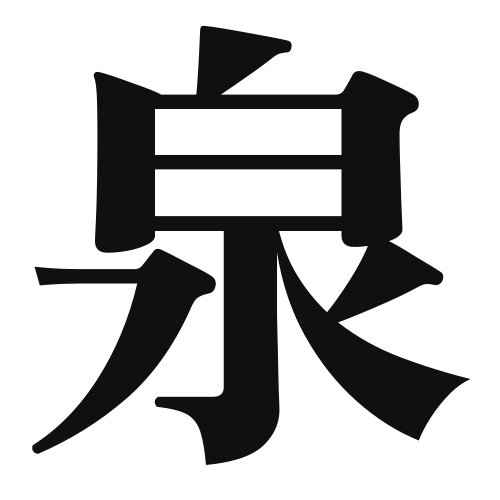1. Overview of Meaning
The kanji “泉” (izumi) means “spring” or “fountain.” It refers to a natural source of water that flows from the ground, often associated with purity and tranquility.
2. Formation and Radical
Formation of the Kanji: The kanji “泉” is a pictogram, representing a spring of water. It visually depicts water flowing from the ground, symbolizing life and freshness.
Radical: The radical for “泉” is “水” (mizu), which means “water.” This radical is commonly found in kanji related to water and liquids.
3. Examples of Usage
Common Words and Phrases:
- 温泉 (onsen) – hot spring
- 泉水 (izumi mizu) – spring water
Example Sentences in Daily Conversation:
- この近くに美しい泉があります。 (Kono chikaku ni utsukushii izumi ga arimasu.) – There is a beautiful spring nearby.
- 温泉に行くのが好きです。 (Onsen ni iku no ga suki desu.) – I like going to hot springs.
4. Synonyms and Antonyms
Similar Kanji:
- 池 (ike) – pond: While both refer to bodies of water, “池” is a still body of water, whereas “泉” refers to flowing water.
- 川 (kawa) – river: “川” indicates a larger, flowing body of water compared to “泉.”
Antonyms:
- 干 (kan) – dry: This kanji represents the absence of water, contrasting with the idea of a spring.
5. Cultural and Historical Background
Relation to Japanese Culture: Springs are often celebrated in Japanese culture, particularly in the context of onsen (hot springs), which are popular for relaxation and health benefits.
Proverbs and Idioms:
- 水は方円の器に随う (Mizu wa hōen no utsuwa ni shitagau) – Water conforms to the shape of its container: This proverb emphasizes adaptability, similar to how a spring flows and takes shape.
